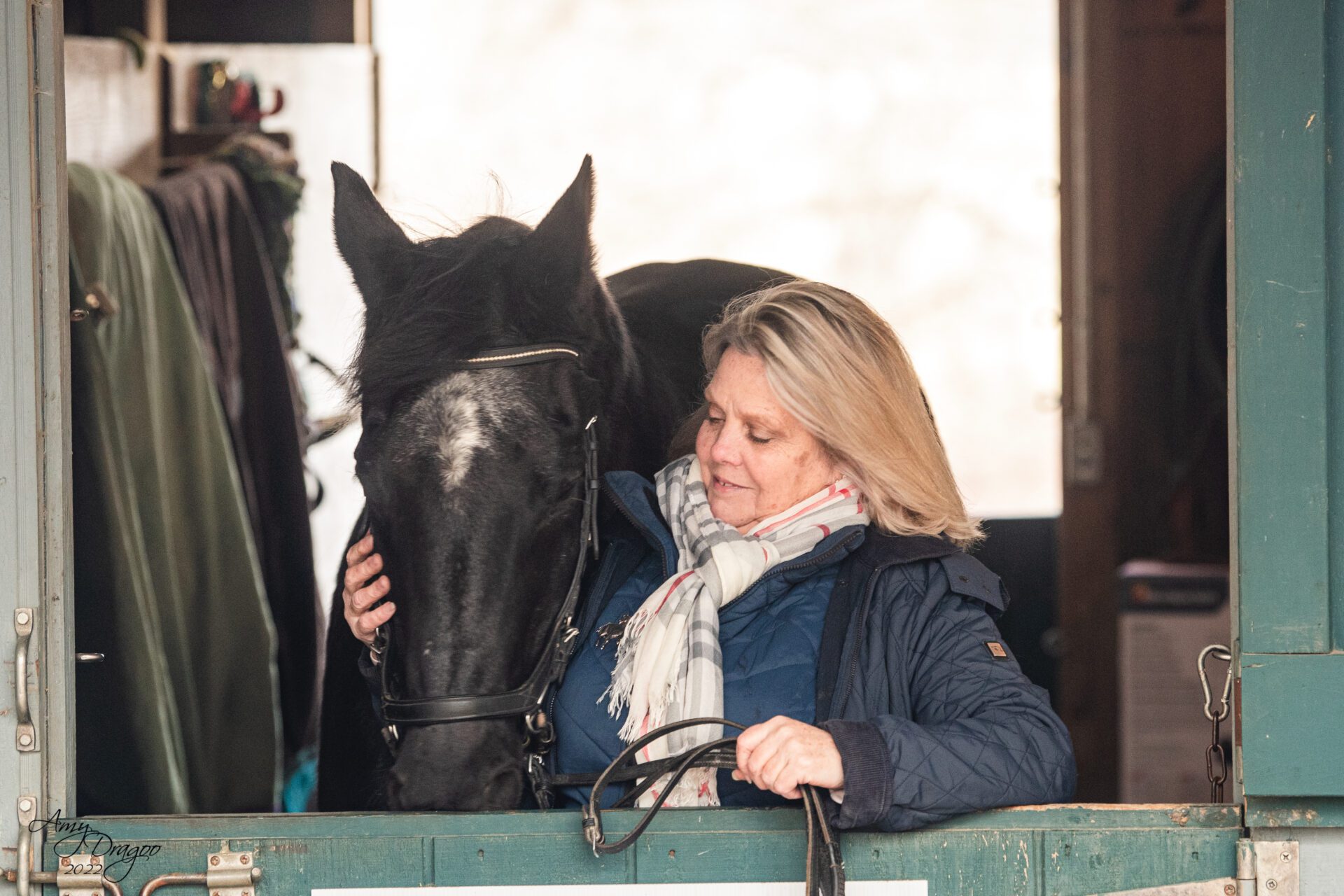Patricia Scott Insurance
Serving Chester County and the Surrounding Area.
My agency works with clients to handle all of their insurance needs. From Auto and home, contractors, or Business Owner. My specialty and my passion are the horse owners of all disciplines. From the single horse owner to trainers, breeders, and those that board horses, I will fine tune your policy to meet your specific needs. Allow me to use my knowledge to protect you and those you love and care for.
Services I Offer
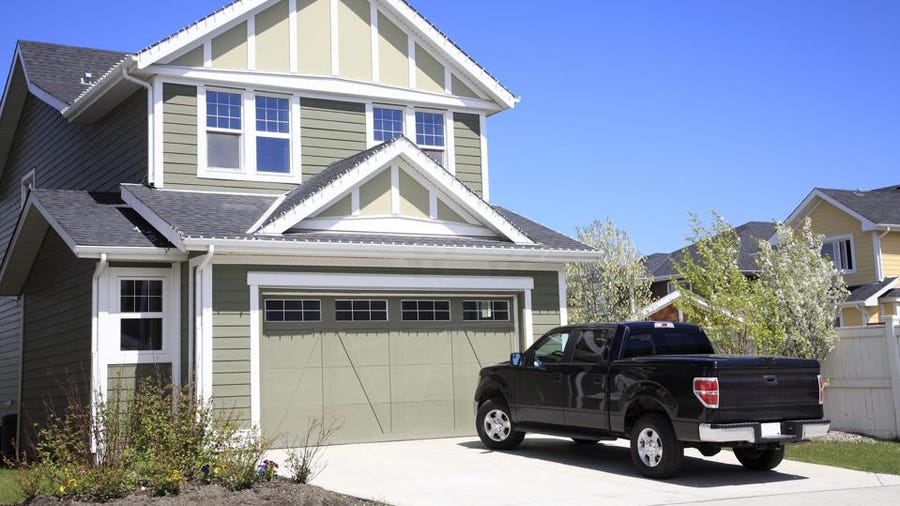
Auto and Home Insurance
As an Independent Insurance Agent, I am able to customize your Home and Auto Insurance to your particular needs. I represent the highest rated carriers and will do my due diligence to find you and your family the best carrier at the right costs. I am always available to discuss your insurance needs.
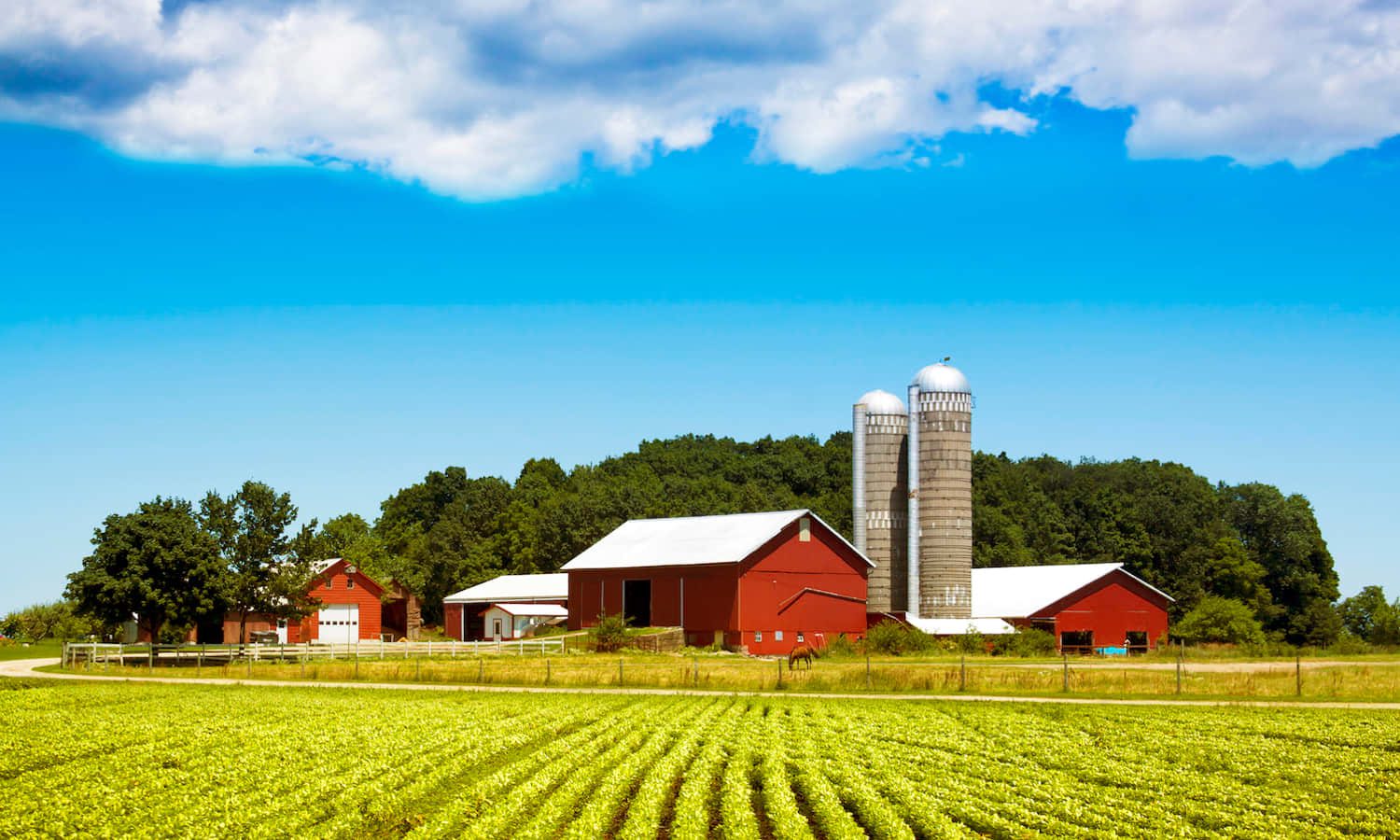
Farm Insurance
I offer farm insurance services to protect your investment. Whether you rent or own a farm. I have got you covered with insurance coverage to protect your business.
Click to Learn: Agriculture Road Safety
Agriculture Road Safety
Most states allow leeway regarding the use of implements of husbandry on public roadways. For the most part, regulations for size and type of equipment don’t apply to those that operate agricultural equipment on the road. But drivers need to be aware of bridge and road embargos to help prevent serious injury and damage to roadways and equipment.
The increase in size of agricultural equipment makes it almost certain that portions will extend “left of center” when operated on public roads. Courts have generally upheld the right of equipment operators to use public roads, but that doesn’t give immunity from liability should you have an accident when the size of your equipment is in direct violation.
Accidents are more prevalent at certain times of the day. Operating in the morning presents an increased risk as people head off to work and school. Drivers are usually in a hurry and often lack the patience to follow a slow-moving vehicle. The same is true during afternoons and early evenings as schools let out and people are returning home from work.
When operating in the dark, be sure to:
- Turn on lights
- Use reflectors or conspicuity tape
- Display SMV sign
- Use an escort vehicle (if you don’t have the proper lighting on the rear of the equipment)
Don’t forget about the trailer. When pulling trailers, operators often rely on the lights from the power unit as their warning system. This can increase the risk of collision because these lights can become obstructed by the roadway curving or the large loads being pulled, such as large hay bales.
Before getting behind the wheel, all drivers must understand the hazards of driving and the importance of sharing the road with others. Never use inexperienced or untrained drivers. Regulations require drivers to be trained on how to operate the specific equipment they are assigned to use and to how to navigate the equipment in the environment they’re operating in.
Let’s look at the following scenarios to learn more:
Avoiding left-turn collisions
The left-turn collision is one of the most common accidents involving articulating farm vehicles, such as a tractor pulling a tool bar and nurse tank. When attempting to make a left turn, equipment operators commonly pull to the right in order to make a wide left turn. Motorists behind the equipment may view the movement of the equipment to the right as permission to pass.
Accidents may be prevented if equipment operators use equipped turn signals or hand or arm signals when operating older equipment. Before committing to the turn, operators should pay close attention to oncoming traffic and check all mirrors or look over their shoulder to ensure motorists are not trying to pass.
Rural bridges and large farm equipment
Large farm equipment and old bridges don’t mix. Before crossing a rural bridge, make sure your vehicle weight will not damage the bridge or cause it to collapse.
Because rural bridges are often very narrow, allow oncoming traffic to clear the bridge before starting across. This reduces the total weight on the bridge and gives you more space to maneuver.
Tractors, combines and sprayers have high wheels with tires that have large lugs to facilitate traction. If you pull right to cross the bridge with oncoming traffic, your tires can easily come into contact with the guardrail and subsequently cause your equipment to climb the rail or even tip off the bridge.
Managing passing cars on rural roads
When driving a slow-moving vehicle, there will always be other motorists wanting to pass. You should never wave a driver to pass. Ultimately, it’s the passing driver’s responsibility to pass – not yours.
You shouldn’t drive with half of your vehicle on the shoulder either. As the passing vehicle straddles the center line, your equipment may sideswipe it if you have to swerve to avoid an oncoming mail box, road sign or other obstruction.
Always drive with the left side of your vehicle to the centerline, even though the width of your equipment extends onto the shoulder. If a vehicle needs to pass, the driver will have to make that decision based on the law and safe opportunity to do so.
Avoiding rear-end collisions
On contoured rural roads, it’s easy for a car traveling at higher speeds to be surprised by a larger, slow-moving vehicle, especially around a sharp bend or after the crest of a hill. It’s difficult for drivers of faster, smaller vehicles to judge the speed and gap distance of a larger piece of equipment.
You can help avoid rear-end collisions by monitoring your mirrors for fast-approaching vehicles and making sure your vehicle’s warning devices, such as SMV signs, are clearly visible. When moving large ag equipment on heavily traveled paved roads, you should utilize an escort vehicle.
Case Study - Motorcycle Collides With Cultivator Attachment.
A motorcycle collides with a cultivator attachment.
You can help reduce the potential for deadly roadway collisions when moving agricultural equipment by ensuring your equipment is highly visible to other motorists. The more visible you are, the less likely you’ll be involved in a collision. Being seen can mean the difference between life and death.
Please take a moment to review the real-life case study we’ve outlined below. It may save you and your company from costly accidents, lawsuits and violations.
A case study of a collision with a tractor and a motorcyclist
An employee was driving a tractor pulling a 17-ft wide cultivator attachment extending 5-6 feet across the center line and obstructing the opposite lane of a two-lane country road. It was a clear, dry day; the farmer wasn’t utilizing an escort vehicle and the cultivator lacked reflective markings or flags.
A motorcyclist traveling in the opposite lane didn’t see the approaching cultivator and drove directly into its path, killing the rider instantly. The rider wasn’t wearing a helmet and didn’t appear to slow down before impact.
Risk Management recommendations to help avoid similar accidents
- Establish standard operating procedures for the safe movement of equipment on public roads. Standardized procedures enable everyone within your operation to perform the task in a consistent manner. Managers should familiarize themselves with state farm vehicle requirements to ensure compliance.
- Use an escort vehicle when driving a wide load. An escort vehicle protects the oversize load and warns motorists of an unusual roadway condition.
- Install proper lighting. Even in daylight, lights make it easier for others to spot you.
- Use reflective markings/flags. Reflective marking material is an effective, low-cost way to identify agricultural equipment. When towing equipment, reflective tape and fluorescent flags should be placed on the outmost edges of the equipment. Fluorescent material is visible in both daytime and low-light conditions.
- Mark agricultural equipment with slow-moving vehicle (SMV) emblems. The SMV emblem is a requirement for moving “implements of husbandry” on public roadways. Implements of husbandry are identified as those vehicles designed and adapted exclusively for agricultural, horticultural or livestock-raising operations.

Contractors
I am here to help Contractors of All Trades keep their business’s running. You do not have to compromise coverage to have affordable premiums. I work with carriers who love the Trades and offer comprehensive coverages that will protect you and your business.
Why Do Contractors Need General Liability Insurance?
Workers who carry general liability insurance know the benefits it offers. They know they are in a much better position than those without one. When an incident occurs during work, it can cost you a lot. Contractors who are not protected by insurance may not be able to stay in business.
If you are a subcontractor, most contractors expect and your contract with them will require you to be covered before you are hired or even step on to the job site.
Contractors or skilled workers are highly paid individuals because of the services they offer. They are mostly skilled and knowledgeable in a particular area. While being a service provider is an excellent career choice, several vital decisions come with it.
Provides Liability Protection
A significant reason a service worker needs coverage is that it offers liability cover protection. When you are completing a job, the service provider will have a certain level of liability.
In the event that the worker makes a mistake, they would be found accountable when presented to a judge. Having the proper coverage set up will offer the necessary liability protection.
If you are ever brought into a “Lawsuit” your Insurance Companies hires an Attorney to represent you. This requires no “Monies “out of your pocket.
Covers Employee Injuries
Another excellent reason a skilled worker needs coverage is to provide his/her employees with protection. A worker with employees is required by law to carry worker compensation insurance coverage.
This will protect the employees if they get injured during work on a project. If this coverage is not set up and an employee gets injured, you could be found liable. You will have to take care of the medicals. Also, the reputation of your business could be in jeopardy.
You also can be “SHUT DOWN “without having a Workers Compensation Policy in force.
Protects Asset
The best service providers have lots of investments made into their business assets. This can be the company’s vehicle, machinery, equipment, and even stocks. If you do not have any coverages, none of your assets will be protected when damaged or stolen.
A contractor’s insurance policy will help to cover the assets of his company.
Helps to Secure More Jobs
When a service provider is trying to bid for new jobs, they mostly will compete against other candidates. A qualified services provider should be licensed and bonded. This will make it easier for them to secure more jobs.
If there is no insurance policy in place, it presents more risk to your clients. They certainly would not want that. So, having the necessary protection will provide trust to your clients. It will also provide a means for you to make more money.
Affordable Policies
A significant reason contractors avoid getting insured is their fear of the cost. They believe it will cost them a lot of money. Although a service provider’s insurance might welcome additional costs, it is not necessarily expensive.
How Do I Get a Contractor’s Insurance for My Business?
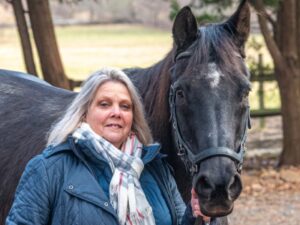
pscott@kbagencyllc.com as an Independent Insurance Broker, I will find the right carrier for you at the best rate available.
Call me directly so we can discuss your Insurance needs. No obligation and no cost to you. I buy the coffee.
Patricia Scott Cell# 484-319-8923
Contact Patricia Scott
Use a Proactive Approach to Workplace Safety.
Use a proactive approach to workplace safety.
We’ve all heard the proverb: “It takes a village to raise a child.” Along a similar line, it takes a safety culture to create a safe workplace. Every employee plays an important role in the safety of all employees — not just themselves.
Creating a safety culture at your workplace requires a proactive safety attitude and a team approach. Consider these tips to help get everyone onboard:
- Talk safety.The more you talk up the importance of safety, the more you’ll generate awareness and attention of employees across all levels. Regular discussion helps promote a safety culture that encourages inclusion and information sharing. It’s widely recognized that the safest workplaces are where workers hear people talking regularly about safety.
- Encourage safety suggestions.Nobody knows a job better than the worker who performs it. That’s why it’s critically important to encourage workers to share their ideas for making their jobs safer. You’ll help improve safety conditions and performance, while involving workers in the improvement process — another plus.
- Act promptly to correct hazards.Whenever a hazard or safety issue is identified, act promptly to correct the situation. If you don’t fix safety problems — even minor ones — right away, employees will think you don’t care. And if you don’t care — why should they?
- Provide ongoing safety and health training.Make sure employees have the skills, knowledge and understanding they need to work safely and avoid accidents. Well-trained employees develop good safety attitudes and are more apt to make safety a priority.
- Reward safe performance.If you’re not already doing so, make safety performance a part of employee performance appraisals. Employees who understand that pay increases, promotions and other rewards are contingent on having a proactive safety attitude tend to take workplace safety more seriously. Be sure to communicate your expectations often with your employees.
- Set positive examples.Make sure your managers and supervisors set a positive example and consistently demonstrate safe behaviors.
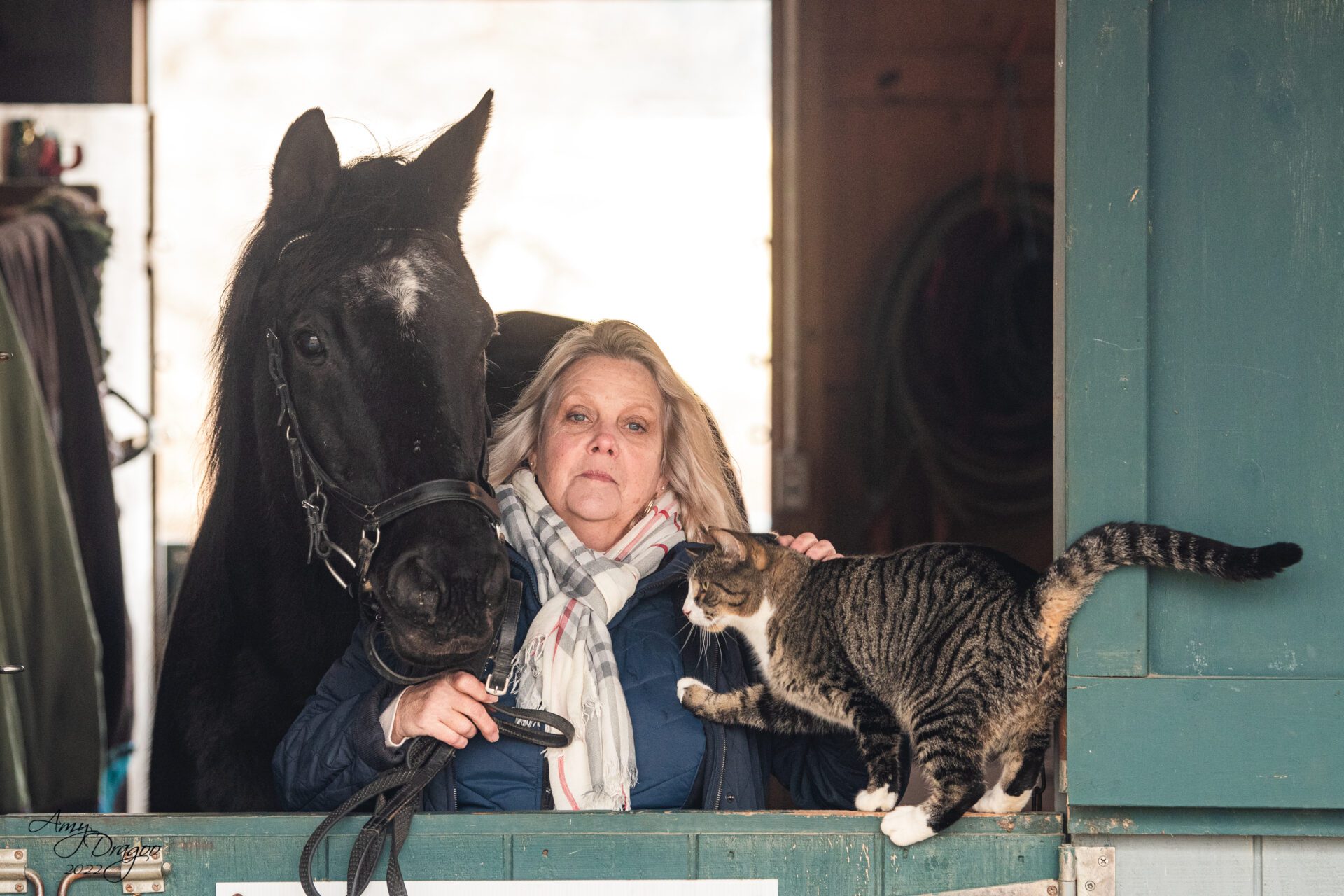
Equine Mortality and Liability Coverage
If you own a horse, you need Mortality Coverage. My carriers offer Full Mortality Coverage which includes Emergency Colic Surgery and Theft!
You have several options to add Medical Coverage. My carriers will insure Eventers for Medical Coverage with Full Mortality.
If you are a trainer, I would like to discuss our Equine Trainers Liability coverage with you, to protect your personal assets as a professional trainer.
What Medical Treatements are Covered?
Surgeries
|
|
|
What Makes Our Mortality and Medical Coverage Unique?
Our Horse Mortality Insurance & Major Medical Insurance is unique in the industry
- This policy is available for foals, yearlings, stallions, mares and geldings of all breeds and types.
- We have designed this coverage to insure your horse against death from almost any cause.
- This includes transportation and humane destruction made necessary by an illness or accidental injury anywhere in the continental United States.
- Basic Form includes coverage for theft and $3,000 colic surgery including aftercare at no additional cost. We can even quote and bind coverage on the telephone!
- Our policy automatically includes Free Colic Surgery coverage, providing the horse does not have a history of colic problems. The coverage limit is 60% of the insured value with a maximum of $3,000 and no deductible. If you insure your horse for Major Medical Insurance or Surgical as well, you will have access to the maximum limits on both coverage parts.
Major Medical and Surgical
This coverage will help you control unforeseen veterinary expenses for events related to the health of your animal. This valuable endorsement covers up to $7,500, $10,000 or $15,000 of reasonable and customary veterinary, medical and surgical care charges necessitated by accident, injury or illness. Humane destruction is covered under the policy but economic destruction is not. If you choose to put your horse down for financial reasons, the policy will not offer coverage for this. Not all policies are created equally. The adage “you get what you pay for” is very true. For example, most policies impose a time limit for how long the insurer will cover a medical problem. This limit varies between companies and can be as short as four weeks. Our policy will cover for the problem for the entire policy period in which it happened. This can be quite important if you are dealing with a serious problem like EPM where the necessary medication and care is both lengthy and costly.
- Diagnostics
- Lameness
- Continuing Care – No policy continuing care time
- Navicular, arthritis, and DJD – Conditions such as navicular, arthritis, and DJD are not automatically excluded.
- Medical extensions – Policy provides for up to 30 days additional coverage after expiration. Some companies have no extension on medical conditions occurring just prior to expiration.
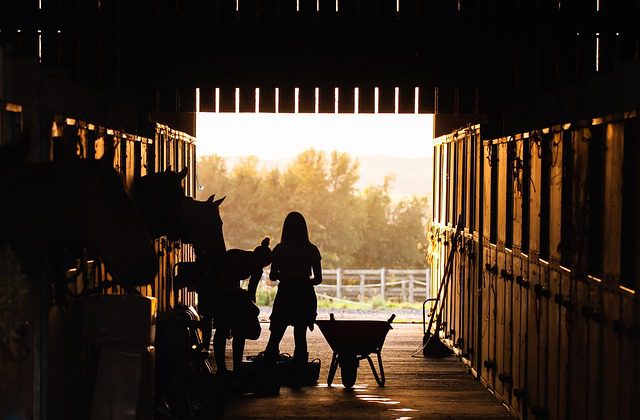
Business Owners
Your business is horses. Patricia Scott Insurance is committed to providing insurance protection for your business.
For over 30 years, we’ve been providing insurance coverages for equine businesses. Patricia Scott commercial equine liability policy is specifically designed for almost any type of horse-related business.
What is Generally Covered for Business Owners?
What Do I Cover?
- Boarding
- Breeding
- Training
- Riding instruction
- Horse sales
- Clinics
- Personal/pleasure horses
Whether you conduct your business on your own premises or rent/lease property, we can provide policies that are customizable to fit your needs, your budget, and your business.
What Can Private Horse Owner Liability Insurance Cover?
Based on my long experience insuring livestock, Patricia Scott Insurance has developed the kind of insurance coverage that works for most private horse owners.
Coverages for:
- Bodily injury and property damage done by a named horse, on or off premises
- Available for horses, donkeys, and mules
- Applies to both personal and/or show use
Coverage highlights
- Coverage applies on or off premises anywhere in the U.S. and U.S. territories
- Limits of $300,000 to $1 million available
- General liability aggregate limits are 3 times the liability per occurrence limit
- Medical payments of $5,000 included
- Can be combined with a separate horse mortality policy
Optional coverages
Available to be added to the private horse owner liability policy for additional premium.
- International liability covers your horse if taken outside the continental U.S. to specified countries for shows, exhibitions, etc.
- Coverage available for competition pulling horses
- For extra protection, excess umbrella liability is available with limits up to $10 million
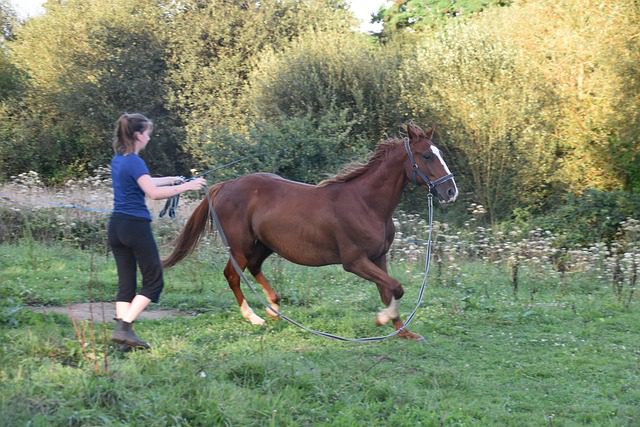
Equine Trainers Liability and Professional Liability Coverage
Proper and Adequate Insurance written to protect your Training Business for yourself or others. Training, Selling and Consigning horses for others exposes you to a “ Professional Liability “ risk and lawsuit based upon your opinion when selling a horse, offering to train a horse or rider.
Why Do You Need Riding Instructors and Horse Trainers Insurance?
You love horses, and you love teaching people about horses. However, horses and people can both be unpredictable. So if someone gets hurt or property is damaged, you could be held liable.
Here are a few examples of accidents that could occur with horse-related businesses:
- An insured independent horse trainer was working on one of our insured’s farms when struck by lightning. He was taken away by ambulance to a hospital.
- During a riding lesson with an insured instructor, the horse stopped suddenly, and the student was thrown off, fracturing her spine.
- While training a third party’s pony, an insured horse trainer was kicked in the face
Don’t wait until you file a claim to determine if you have the proper insurance protection.
A horse farm or ranch needs specialized insurance protection for both horses and property.
You know horses are capable of damaging property and injuring people. So your insurance coverage needs to offer insurance protection against not only those kinds of liability claims but also provide coverage for your home, stables, equipment, and even your personal valuables.
With over 30 years of experience writing equine insurance, we understand the risks and liabilities to horse farm and ranch owners like you are exposed to. That’s why we provide customizable insurance solutions to cover your farm property and commercial equine operation.
Why do I need insurance for my horse farm and ranch?
It’s critical to have insurance protection against claims you may experience when managing your farm or ranch business. Patricia Scott Insurance is an equine specialist who is writing policies and helping her clients with claims. We can provide liability, and medical payments, along with property coverage for your home, stables, equipment, vehicles, valuables, and more—all in one policy.
Don’t wait until you file a claim to find out if you have the proper insurance protection for your horse farm or ranch.
Why Do You Need Liability Insurance for Your Commercial Equine Operation?
You can never be quite sure how a horse will react in a certain situation. Even the gentlest of horses can injure someone or damage property. If it’s a customer or visitor who gets injured, or someone’s property is damaged and you are found negligent, you could be held responsible and at risk of having to pay a high monetary settlement. That’s why you may need a Markel Specialty commercial equine liability policy—even if you have other coverage that protects you from general liability.
Here are two examples of claims we’ve paid out for our customers*:
- A student was riding on our customer’s property, when the horse suddenly stopped. The student was thrown off and fractured her spine.
- A prospective buyer of a horse took the horse on a trail ride after our customer first had them sign a trail ride release. Along the trail, the horse wanted to turn around and go back. The buyer was told several times to rein the horse in or turn him around, but the buyer let the horse proceed. The horse picked up speed and the rider fell off.
You never can tell what might happen. However, we can provide commercial equine liability insurance protection for you and your horse business.
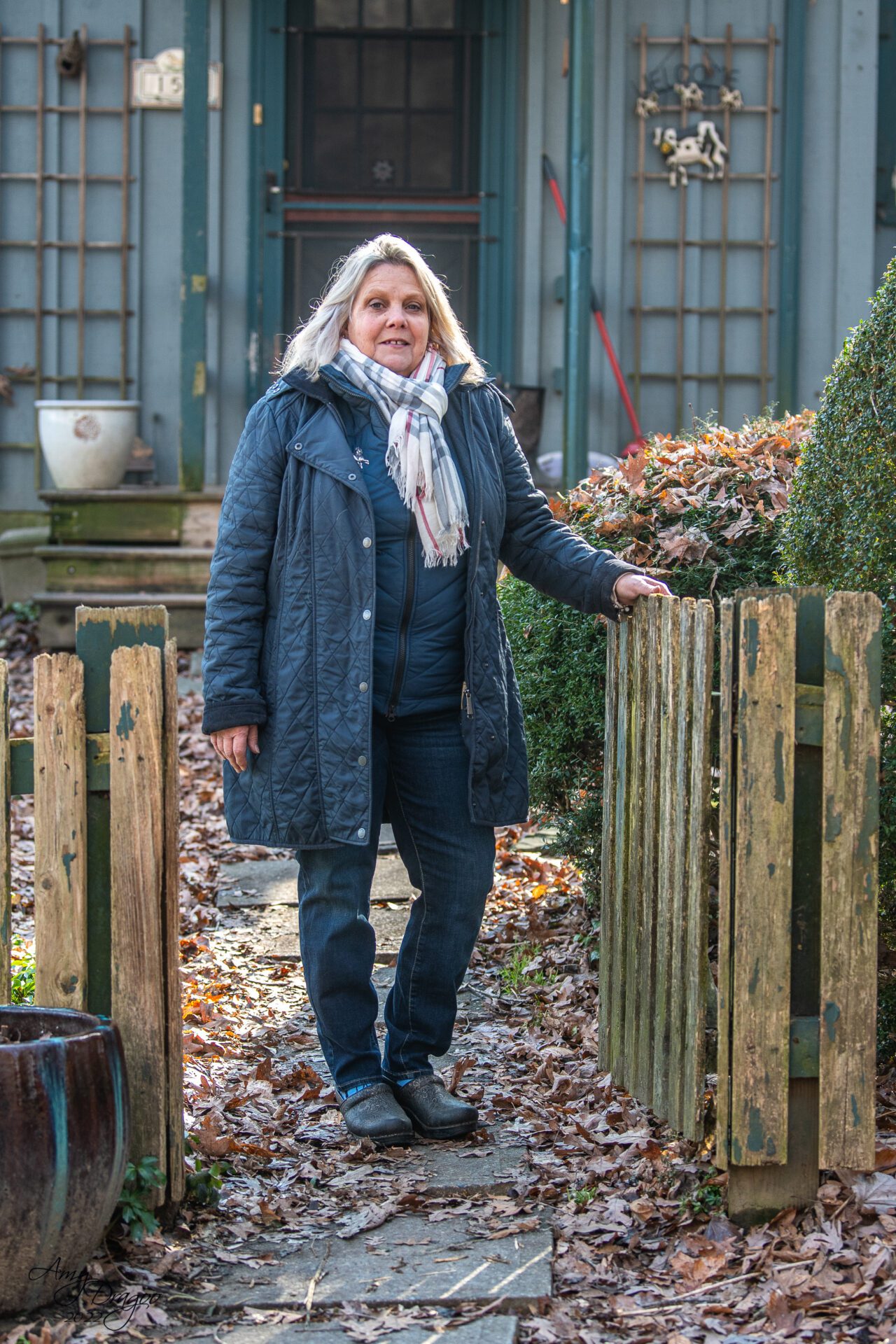
I strive to build trust with my clients through relationships and providing adequate coverage for their farming business. It is not a matter of price or time; it is a matter of trust.
With over 30 years of experience, Patricia Scott Insurance offers top-notch insurance services to help you get secured. I have put a lot of effort into determining the best ways to assist you and provide you with the best possible insurance coverage.
With my services, you can rest assured that you are financially secure. My specialty is the Equine Farm Insurance but, I enjoy working with every type of Farm, Business Owners and Contractors. If you are looking to insure your Farm whether you rent or own the property, I am able and willing to assist you. Let me find the right protection for all your insurance needs. Whether you are a horse owner or breeder, or you own or rent a farm, and looking to ensure the protection of your business, I have the resources to get you the right coverage you need.
If you reside in the following states Pennsylvania, Maryland, Delaware, New Jersey, Virginia, West Virginia, Kentucky, North Carolina, South Carolina, New York, and Ohio. You can come to Patricia Scott Insurance, and I will help you find the right insurance coverage for all your Insurance needs. Contact me now for more details regarding how I can help you.

